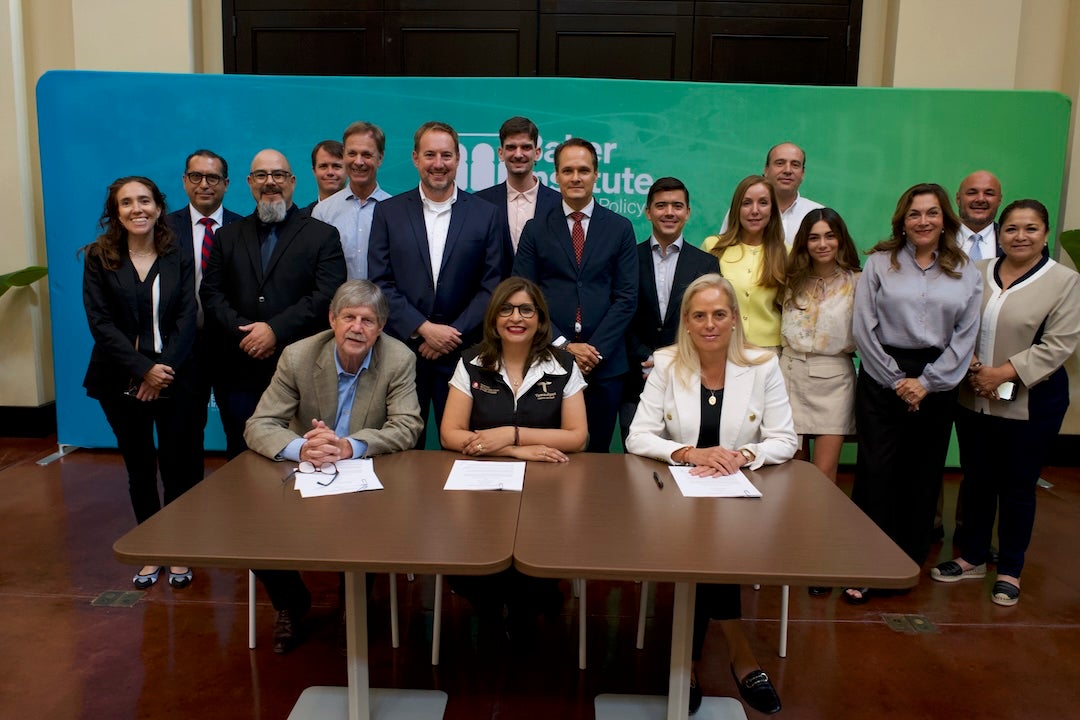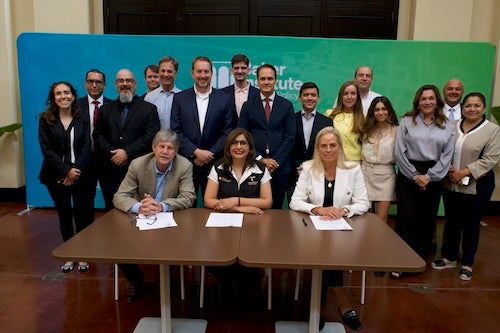Representatives from the Mexican state of Tamaulipas, Earth Carbon and the nonprofit BCarbon met at Rice University’s Baker Institute for Public Policy last month to sign a memorandum of understanding recognizing their collaboration in carbon sequestration. Since then, Since then, in accord with an MOU between BCarbon and Rice, the team has been in Mexico meeting with stakeholders and changemakers to create a carbon market that benefits the community.
BCarbon harnesses the power of soil, forests and wetlands to promote ecological regeneration. The nonprofit carbon registry and climate research center emerged from the Baker Institute and brings simplicity, reliability and scale to the market for nature-based carbon credits. The measurement-focused protocols help strengthen rural economics and regenerate rangelands, forests and coastal marshes while providing a pathway to net-zero goals.
The BCarbon registry began at the Baker Institute’s Center for Energy Studies and was spearheaded by Kenneth Medlock, senior director of the Center for Energy Studies, and Jim Blackburn, professor in the practice of environmental law in Rice’s Department of Civil and Environmental Engineering, faculty scholar at the Baker Institute and co-director of the Severe Storm Prevention, Education and Evacuation from Disaster (SSPEED) Center at Rice, who recently stepped down as CEO of BCarbon but remains as Chairman of the non-profit’s board.
“The strategic partnership between Rice and BCarbon provides the science and the academic rigor to strengthen the protocols that BCarbon is developing on behalf of Tamaulipas,” Blackburn said. “We’re ensuring that the reseachers, the registrty and the state of Tamaulipas have data and measurements to make decisions that benefit everyone. The people we’ve been meeting with have really appreciated the BCarbon-Rice connection.”

The carbon credit market will allow landowners — private, public and ejidos — to sell carbon credits to emission emitters. With BCarbon’s expertise in carbon measurement and sequestration, the work for the teams has been to make the right research connections and find the most efficient processes for credit issuance.
“It’s not just about biodiversity but about the future of our people,” said Karina Saldívar, Mexico’s secretary of urban development and environment.
Ivonne Cruz, research scholar at the Baker Institute’s Center for the U.S. and Mexico, noted how important it is to bring together academia, industry and governance to advance policy and create programs that benefit the planet as well as people. Tamaulipas, just south of the Texas border, is known for its indigenous communities, agriculture, coastline and diverse ecosystems such as the El Cielo Biosphere Reserve, a UNESCO World Heritage Site.
“Tamaulipas has vast natural resources,” Cruz said. “What they’re aiming to do is set in motion a system where there will be private owners of land that will be able to sell their carbon credits to emission emitters. Companies have certain emission thresholds that they cannot actually go over. They need to compensate for this pollution or this overstock of emissions that they’re pulling out of the atmosphere by using nature-based solutions — that’s using nature such as trees, grassland, good quality soil, in order to capture this excess of carbon and other pollutants from the environment.”
BCarbon’s voluntary system is designed to enhance economic resilience for both the agricultural and industrial communities, offering solutions that could result in a new multibillion-dollar market while restoring the robust ecosystem of the native prairie and grasslands.
“No carbon-capture tech is better than photosynthesis,” Blackburn said. “It’s free. But it’s owned and managed by humans and human systems. As with everything human, the problem is with managing the human system, not the natural one.”
To learn more about Rice’s work for the environment, visit the Sustainability Institute.

